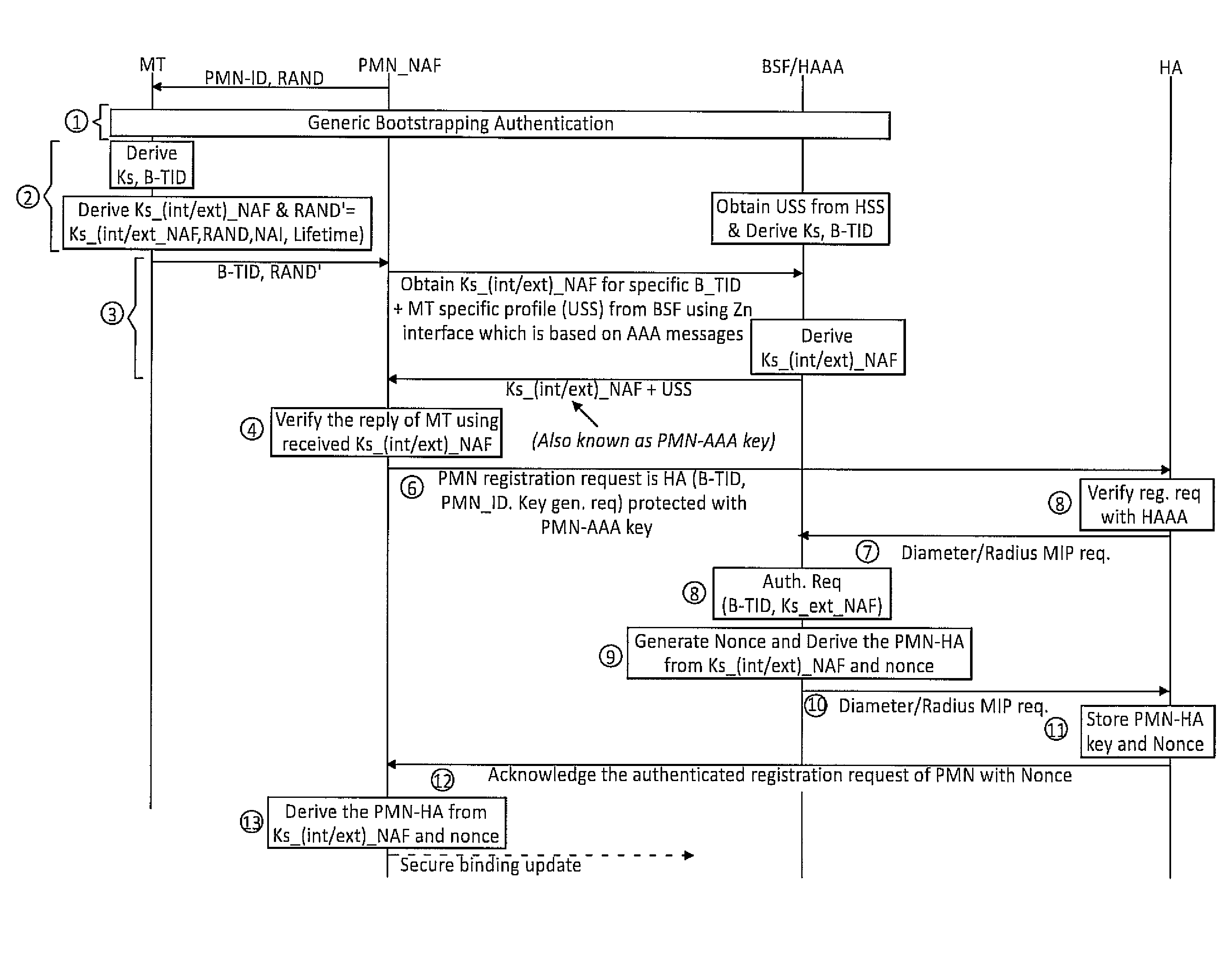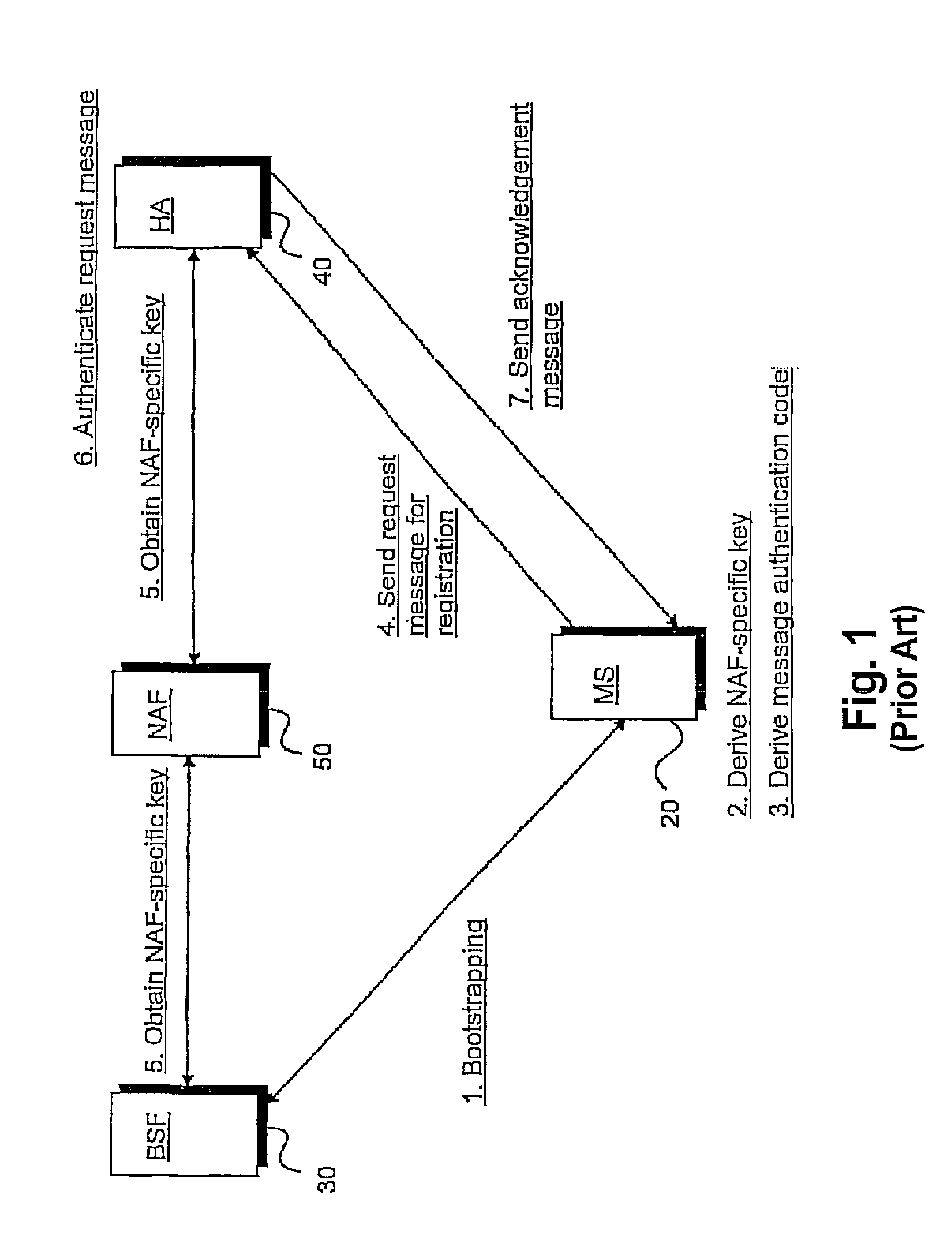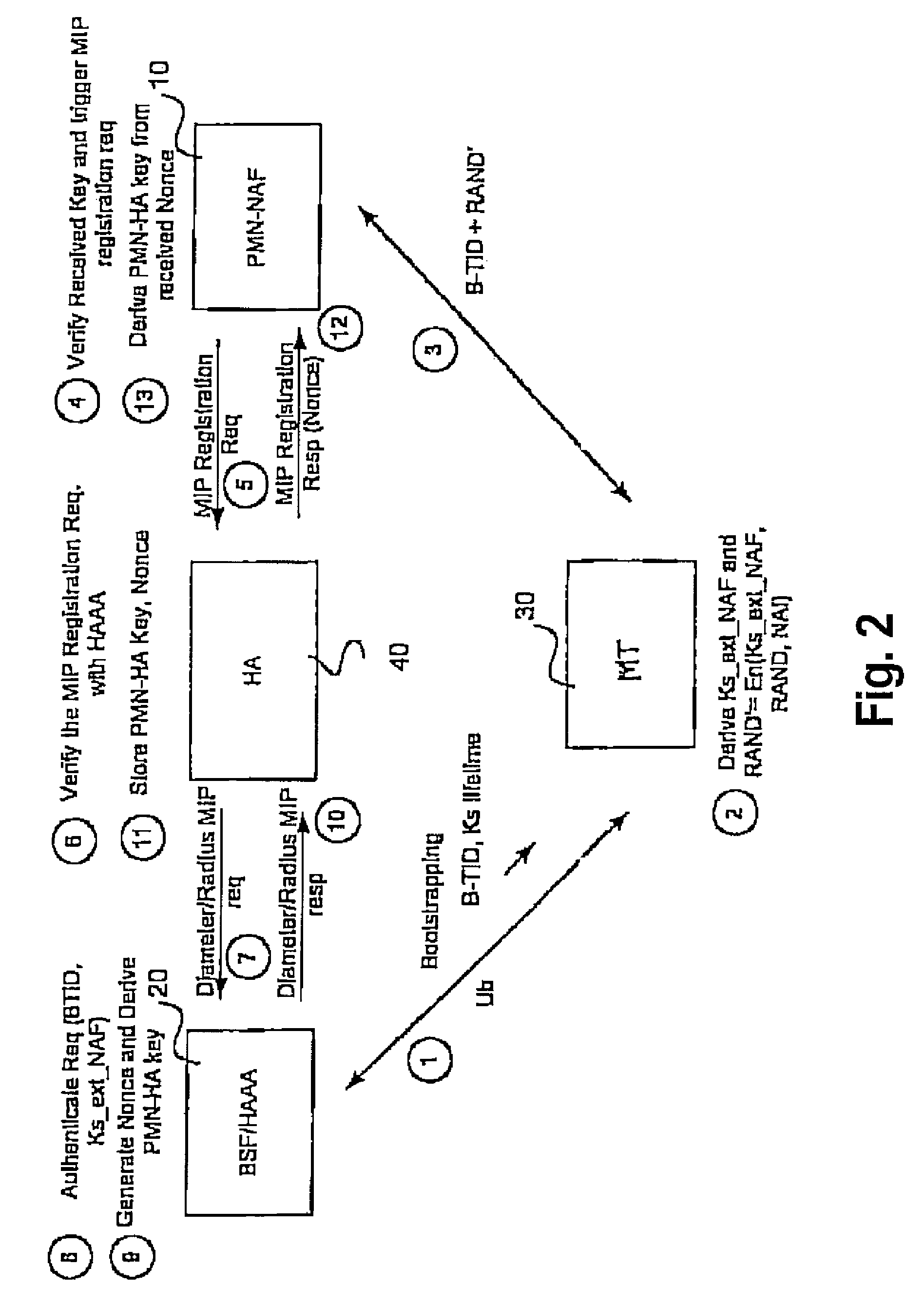Using GAA to derive and distribute proxy mobile node home agent keys
a technology of mobile nodes and keys, applied in the field of authentication of users in telecommunications networks, can solve the problems of limited radius in its effectiveness to ha and fa, process will not work in mobile ip networks, and network effectiveness is not effective for networks using proxy mobile nodes
- Summary
- Abstract
- Description
- Claims
- Application Information
AI Technical Summary
Benefits of technology
Problems solved by technology
Method used
Image
Examples
second embodiment
[0033]The second preferred embodiment of the invention is a Mobile IP specific key distribution making only partial use of GBA to generate and distribute the PMN-HA key. FIG. 4 is a block diagram showing the The addresses acquired by MT 30 could be independent of the bootstrapping procedure. If addresses are acquired by MT 30 as a part of the bootstrapping procedure, then the last message of XML body of bootstrapping “200 OK” element should add a new element.
first embodiment
[0034]In terms of being in a home network or roaming, the HA and FA should convey key (or its variant PMN-HA key) to PMN. When in the same network or domain, this should be no problem. Once PMN receives the key (or variant PMN-HA key), it can follow the proxy registration process with HA 40 using conventional MIP registration specific messages as defined by IETF. Preferably, in order to support both versions of MIP, i.e. MIPv6 and MIPv4, there is a distribution of keys from AAA to HA. This embodiment allows the HA, FA, and the PMN to be conventional apparatus. In other words, they do not need NAF specific support as with the
[0035]As shown in FIG. 4, the bootstrapping procedure between BSF 20 and MT 30 is stage (1). As a part of this stage, the HAAA server downloads the USS about MT 30. During the bootstrapping procedure between BSF 20 and MT 30, BSF 20 generates the B-TID and Ks and Ks. This key is used to derive the keying material for authorized services in the visited domain, a s...
third embodiment
[0047]In the third embodiment, where GBA is fully used to derive and distribute the PMN-HA key, HAAA is enhanced with NAF into a new network element 50. FIG. 6 is a block diagram showing how GBA is used to derive and distribute PMN-HA keys in a MIPv4 / v6 network with HAAA-NAF 50. FIG. 7 is a flow diagram showing the signaling messages among the network elements in FIG. 6.
[0048]The first three stages of the third embodiment are similar to those in the first embodiment. The first stage (1) is the generic bootstrapping performed between MT 30 and BSF / HAAA 20 in the home network. BSF / HAAA 20 generates B-TID; shared keys (Ks) also known as a base secret key, and the lifetime of Ks. The B-TID is in Network Access Identifier (NAI) format and generated by taking base64 encoded random challenge value and the server name of BSF / HAAA 20 (for example, base64encode(RAND)@BSFservers_domain name. BSF / HAAA 20 sends a message including B-TID and lifetime of snared key Ks to MT 30 to indicate successf...
PUM
 Login to View More
Login to View More Abstract
Description
Claims
Application Information
 Login to View More
Login to View More - R&D
- Intellectual Property
- Life Sciences
- Materials
- Tech Scout
- Unparalleled Data Quality
- Higher Quality Content
- 60% Fewer Hallucinations
Browse by: Latest US Patents, China's latest patents, Technical Efficacy Thesaurus, Application Domain, Technology Topic, Popular Technical Reports.
© 2025 PatSnap. All rights reserved.Legal|Privacy policy|Modern Slavery Act Transparency Statement|Sitemap|About US| Contact US: help@patsnap.com



